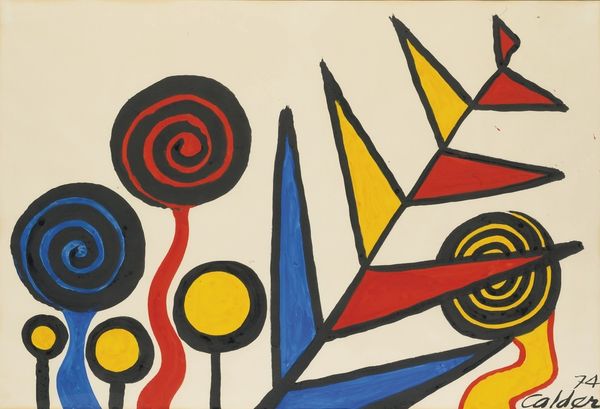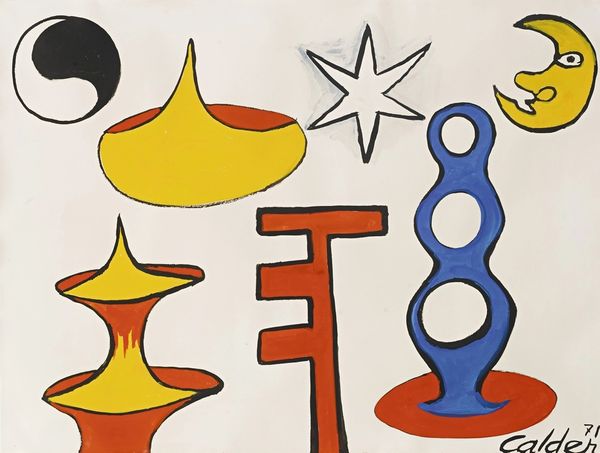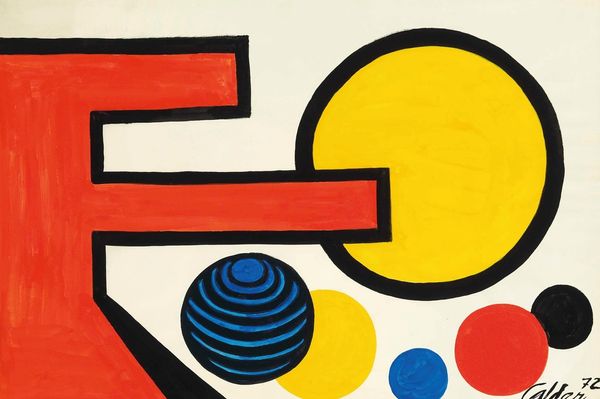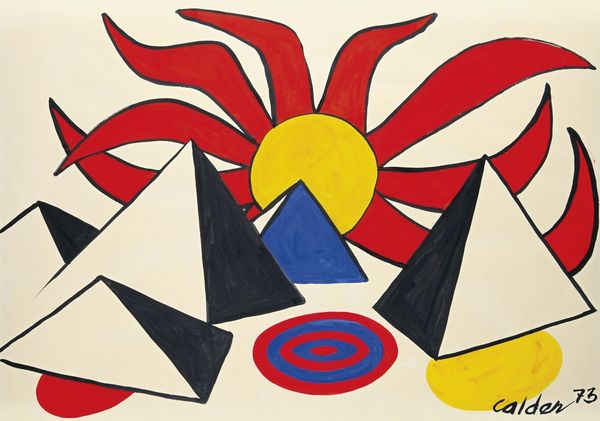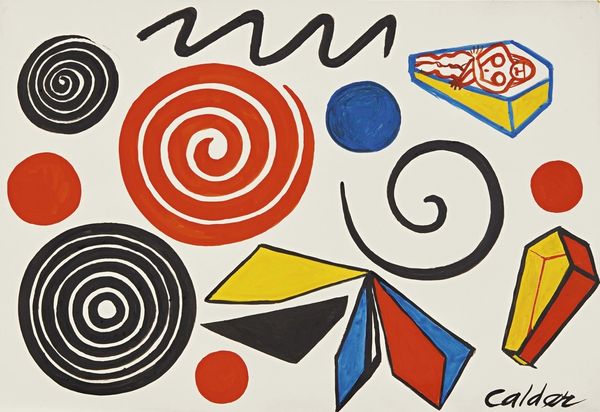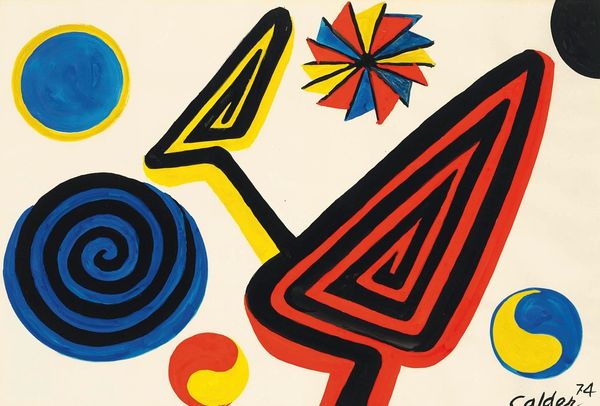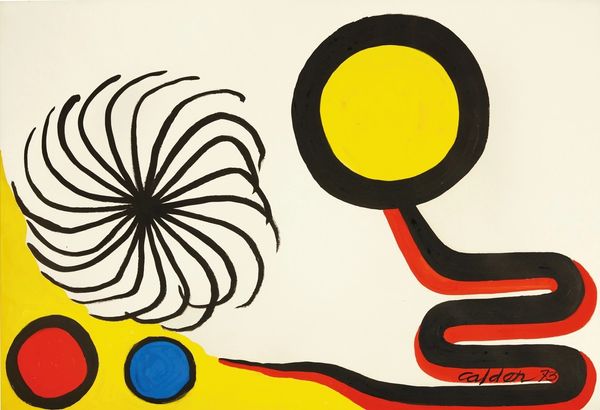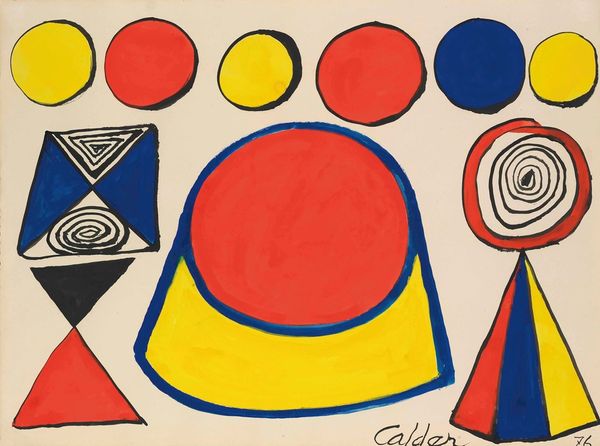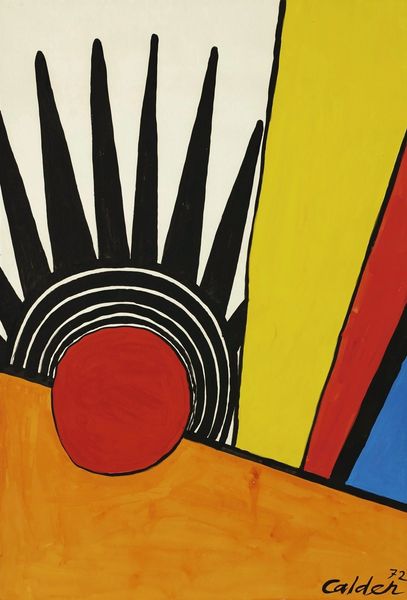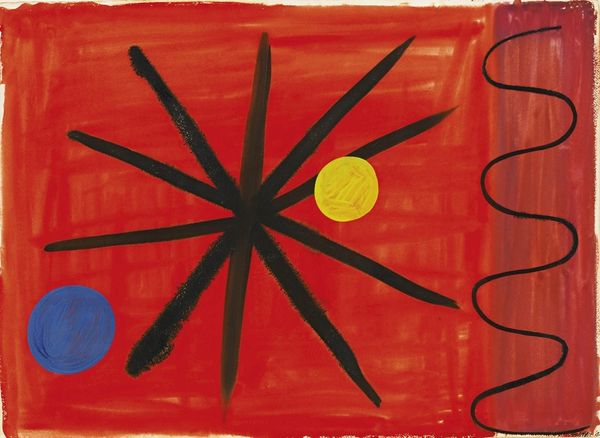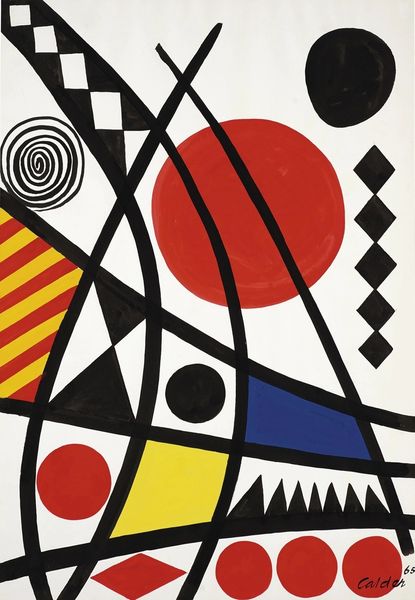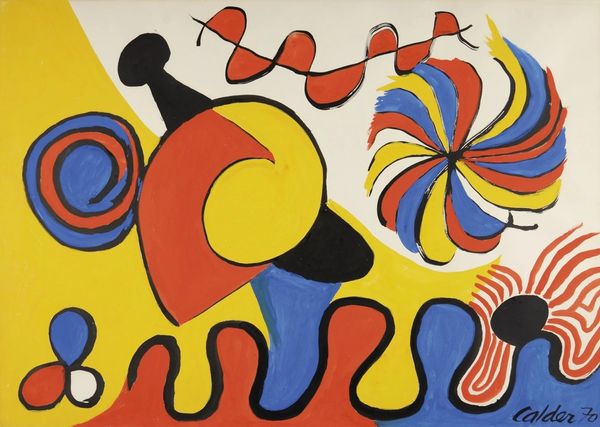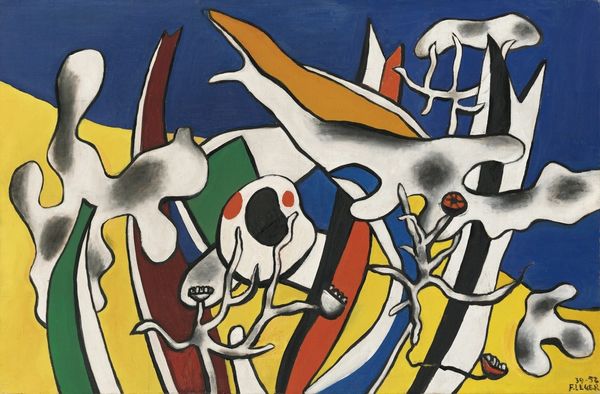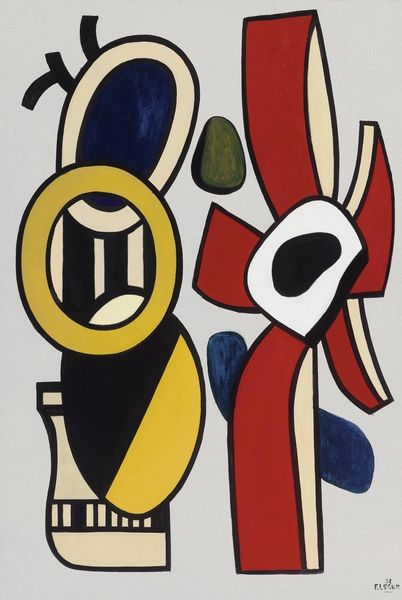
Copyright: Modern Artists: Artvee
Alexander Calder created 'Rose des vents' with gouache on paper in 1971, at a time when his abstract style was world renowned. Here we can see how his visual language of simplified forms and bold primary colors evokes a sense of playful, almost childlike wonder. But what does it mean? Is it a whimsical experiment or something more? The title, translating to 'compass rose,' suggests a deeper exploration of orientation and direction. The juxtaposition of the abstract figure and geometric shapes invites a reflection on the relationship between humanity and the wider cosmos. To fully appreciate Calder's work, one must investigate the art world of the mid-20th century and the post war culture. Archival material, like the artist's papers, and the history of institutions like the Museum of Modern Art can shed light on the artist's context, his inspirations, and his place in the canon. Ultimately, art history reminds us that the meaning of art is inseparable from its time.
Comments
No comments
Be the first to comment and join the conversation on the ultimate creative platform.
